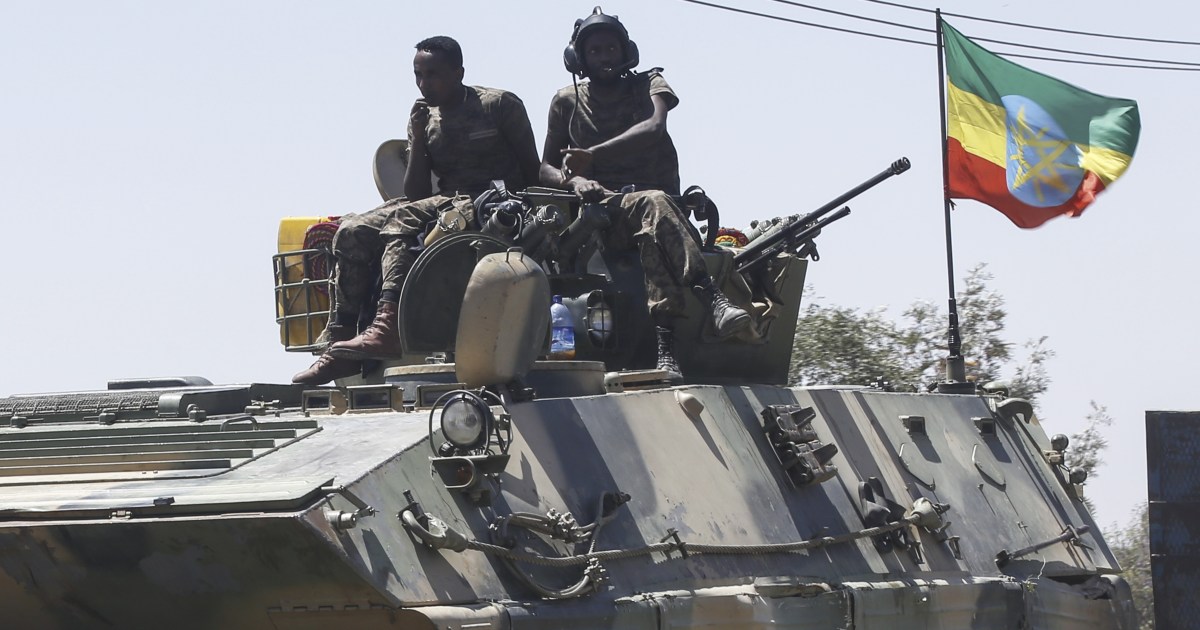Al-Jazeera correspondent in Ethiopia reported that government forces tightened their grip on the strategic town of Shifra overlooking the Amhara region from the west, while France began evacuating its nationals from the Ethiopian capital, Addis Ababa.
The reporter added that the federal army sent in military reinforcements to support its forces, and that the streets of the town had turned into a military barracks after it became a concentration point for government forces.
These forces have begun combing the remaining pockets and removing mines and explosives in preparation for advancing into the depths of the Amhara region.
control of afar
For its part, the Afar special forces supporting the Ethiopian army announced the restoration of full control over the Afar region (northeast of the country).
The federal army told the island that it would continue its advance - from the Afar region - towards the Amhara region, especially to the areas of "Bati" and "Kombulcha".
Al-Jazeera correspondent in the Afar region - Muhammad Taha Tawakul - confirmed that the government forces were able to secure the strategic Mille Road, through which more than 90% of the incoming Ethiopian imports pass through the port of Djibouti, where more than a thousand trucks pass through to Addis Ababa.
Battles are still raging in several regions in northern Ethiopia, and Prime Minister Abiy Ahmed appeared for the second day in a row from the battlefronts in military uniform.
Abi Ahmed said that his country is proud of its soldiers and national army, and that they will repel the enemy's attack and will achieve victory, and that the Tigray Front will not be able to defeat the soldiers of his country.
On Saturday, the Ethiopian government announced that the army had regained control of the Burqa and Shifra regions on the border between the Afar and Amhara regions.
As for the Shawarbit front, battles are still taking place between the government forces on one side, and the alliance of the Tigray Front and the Oromian Anuq Sheni group on the other.
evacuating nationals
In this context, a source at the French Foreign Ministry told Reuters on Sunday that the Foreign Ministry had ordered fully paid private charter flights to return its nationals to the country.
Last week, France urged all its nationals to leave Ethiopia without delay as the conflict escalated there.
The US Embassy in Addis Ababa had said that the security situation in the country continues to deteriorate, and urged its citizens to leave immediately and to use the available commercial options.
Last Friday, Canadian Foreign Minister Melanie Jolie urged her country's citizens to leave Ethiopia immediately, saying that Canada was concerned about the "rapid deterioration in the security situation there."
Jolie added - in a statement - that the Canadian embassy in Addis Ababa is still open.
The US Embassy in Addis Ababa had said that the security situation in the country continues to deteriorate, and urged its citizens to leave immediately and to use the available commercial options.
Last Friday, Canadian Foreign Minister Melanie Jolie urged her country's citizens to leave Ethiopia immediately, saying that Canada was concerned about the "rapid deterioration in the security situation there."
Jolie added - in a statement - that the Canadian embassy in Addis Ababa is still open.
American concern
In international reactions, US State Department spokesman Ned Price said that Secretary of State Anthony Blinken is deeply concerned about the military escalation in Ethiopia.
Price added - after a phone call between Kenyan President Uhuru Kenyatta and Blinken - that the minister stressed the need for urgent action to conduct negotiations.
On the humanitarian front, the United Nations World Food Program says more than 9 million people are facing hunger as a direct result of the conflict.
The humanitarian crisis is concentrated in the three regions: Tigray, Amhara, and Afar. The Amhara region has witnessed the largest jump in numbers in terms of the number of people in need of urgent humanitarian assistance, with nearly 4 million people.
And the extent of malnutrition has expanded in the fighting areas, and figures indicate that about 50% of pregnant and lactating women who were examined in Amhara and Tigray suffer from malnutrition.
As for children, the examination data indicated that malnutrition rates among them in the three regions ranged between 16% and 28%.

